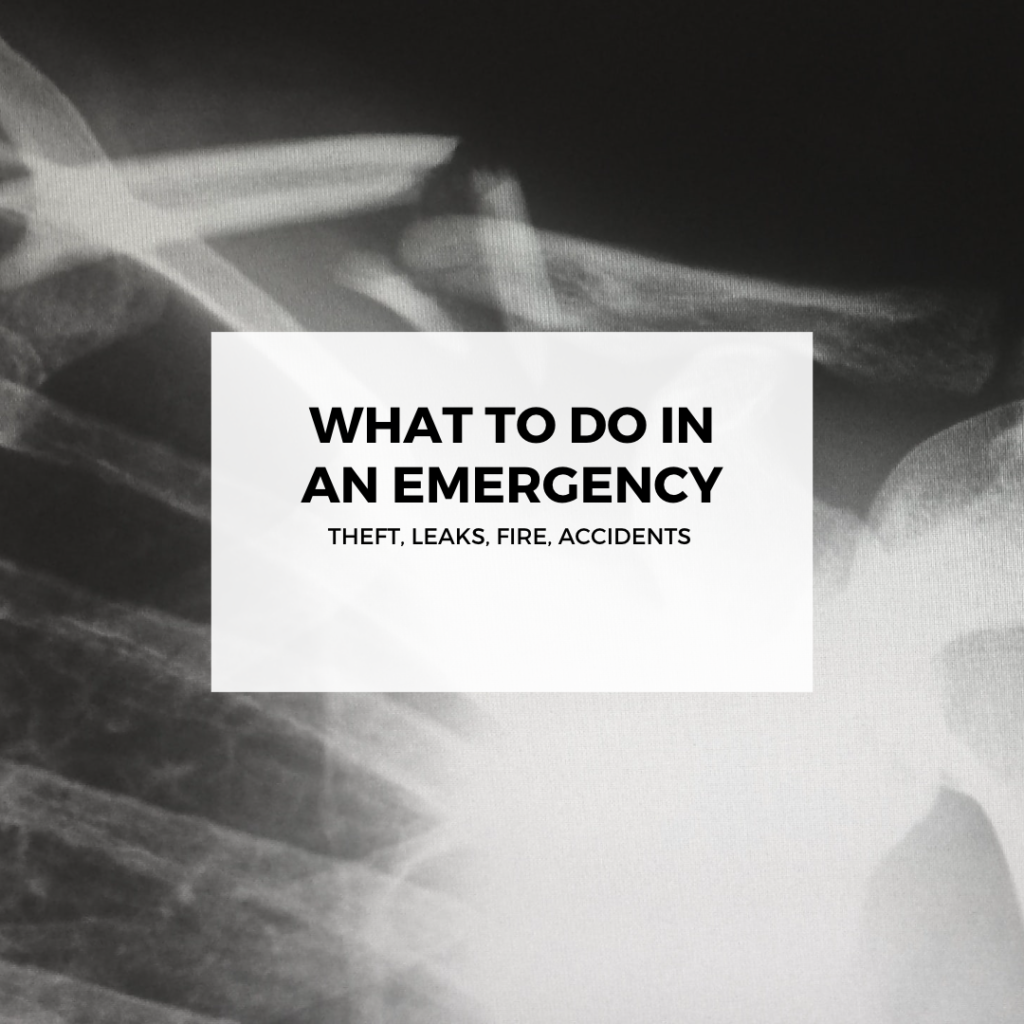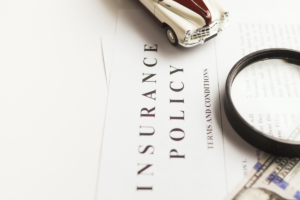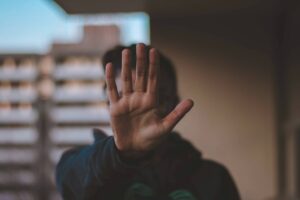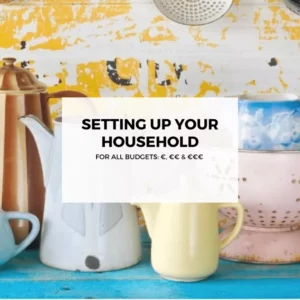
Today’s blog was inspired by two robbers who broke into my apartment. Motivated by this robbery, I wanted to cover several scenarios that merit an “emergency” status, so I’ve also included a leak (I had one in 2022), a flood (I had one in 2017), a fire (touch wood) and having your small valuable items stolen.
Overall we thought it might be helpful to make sure you know how to handle different emergencies. Here’s what you need to know:
Theft
If your wallet or phone is stolen:
- Immediately call your bank to cancel any credit cards or report the theft of your phone to your service provider. You can read in Antje’s interview how quickly the thieves went to work on her documents!
- Report the theft to the police as soon as possible. Do this either online or by going to your nearest police station.
- Write down the details of what was stolen, including any serial numbers or descriptions of the items. Add these to your opened report with the police.
How to best prepare to prevent your wallet or phone to be stolen:
While there is no foolproof way to prevent theft, try to keep your belongings close to you and always be aware of your surroundings. Keep your wallet and/or phone close to your body, especially in crowded areas. If you have to use either, hold it close to you and keep a tight grip. Do not carry large amounts of cash.
Password-proof your phone and back it up regularly, this way when it goes missing, you keep your data. Install a tracking app on your phone which can help you remotely track or lock it once it’s gone.
Breaking & Entering
If you experience a break-in:
As someone who lives in Paris, the best mindset to have is not to wonder if someone will try and rob your home, but that it will happen, and you can only best prepare for when this moment happens.
- Call the police immediately.
- Do not touch anything or move anything in the room until the police arrive.
- Call your insurance, especially if there was damage to the door. Only an insurance-approved locksmith will be reimbursed, so don’t go calling a locksmith on your own, the cost will be horrendous and you won’t get reimbursed!
- Write down what was stolen or damaged and start gathering invoices if you have any.
- File a proper police report, you will need to go there in person – be mindful that you’ll probably have to wait a few hours until it’s your turn to give your statement. You need to file the report for the report number, which is mandatory to file an insurance claim.
- Open a claim with your insurance – this can take forever, so I won’t give any advice here.
How to best prepare to prevent your home being broken into:
Keep your home locked when you leave. Consider installing deadbolts or other security locks for added protection, if you can. Investing in a home security system, such as a burglar alarm, will significantly reduce your chances of being burgled, as thieves like to work in silence. To quote the policeman who came to my home after my robbery: “people with burglar alarms do not get burgled”.
Don’t advertise your absence, avoid announcing you’re gone for a prolonged amount of time on social media or telling taxi drivers or delivery people, any strangers, really. Finally, get a security camera for your house. This way you can monitor your home while you are gone, and any wrongdoings are caught on tape which you can later share with the police.
Water Damage
If you experience a leak:
- Turn off the water supply to stop the leak.
- Turn off the electricity supply to avoid any risk of electrocution.
- If you need a plumber, call your insurance to get it validated by them – if you don’t, they won’t pay for it. This is how I once lost €4000.
- If the leak is affecting a neighbour’s property, let them know what’s happening, tell them your insurance has been informed and that you are working on resolving this. They, too, will contact their insurance.
- Call the fire station if the water is rising quickly, they will help you once they arrive
- Move your furniture and belongings to higher ground if possible.
How to best prepare to prevent a leak:
Regularly inspect your pipes for signs of corrosion, wear, or damage. If you notice any problems, get them repaired as soon as possible. High water pressure can cause pipes to burst, so make sure to check your home’s water pressure regularly and adjust it if necessary. Insulating pipes can help prevent them from freezing during the winter, which can cause leaks.
If you have old plumbing in your home, consider replacing it. Older pipes are more likely to leak or burst, and they may also contain harmful substances like lead. Only flush toilet paper and human waste down the toilet. Flushing other items like wipes, sanitary products, or cooking fat can clog pipes and lead to leaks. Personally, if I wasn’t sure, I would cut the main water mine at my home when I would leave the house, “just in case”.
Fire
If you experience a fire:
- Call the fire station immediately.
- Evacuate the building as quickly as possible.
- Stay low to avoid smoke inhalation.
- Once you are out of the building, do not go back in until the fire department gives the all-clear.
How to best prepare to prevent a fire:
Ensure that you have smoke detectors installed on every level of your home and in each bedroom. Test them monthly and replace the batteries at least once a year. Stay in the kitchen when you’re cooking and keep a close eye on your food. Keep flammable items like oven mitts and paper towels away from the stove, and always make sure you turn off the stove and oven when you finished preparing your meal.
Don’t overload electrical outlets: this can cause them to spark and start a fire. Make sure to use only one plug per outlet and avoid using extension cords when possible. If you have a space heater, keep them at least three feet away from flammable items and never leave them unattended. Store flammable liquids like gasoline, paint thinner, and alcohol in a cool, dry place, away from heat sources and sparks.
Make sure you have emergency contact numbers with you at all times, and make sure you know the location of the nearest police station, fire station, and hospital.


